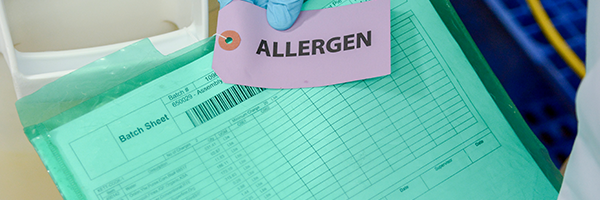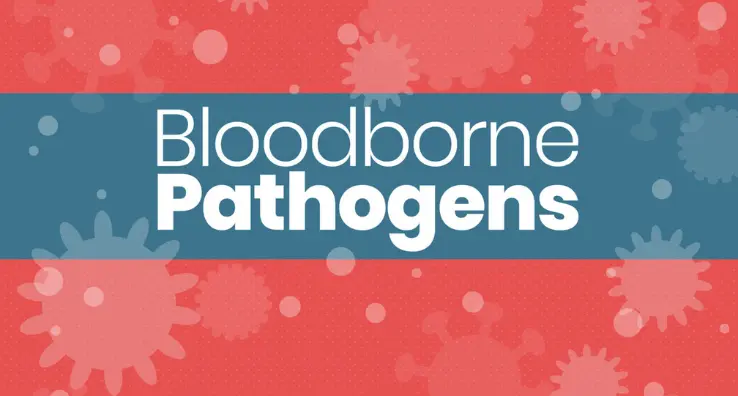4 Ways to Prevent Undeclared Allergens

Navigating the grocery store aisles when you or a family member suffers from a food allergy can be a daunting task. Having to read the ingredient statement on every product you put in your basket when you shop takes an extraordinarily patient effort. No running in quickly to pick up a few things. You must be diligent in checking every ingredient every time you make a purchase. The food industry must show an even higher degree of diligence with its ingredients, processing aides, and packaging in order to eliminate the risk of undeclared allergens.
Here are four things food companies should do to prevent undeclared allergens in their products and facilities:
Start with the basics
Check and recheck all specifications and labels to ensure that raw materials, processing aides, and product-contact packaging have clear and accurate ingredient declarations. This is no easy task, but it’s absolutely worth the time and effort. These specifications most likely feed into your finished product labeling database, and without accurate information, any inaccuracy carryovers will undoubtedly compromise your product labels.
Ensure your suppliers are fully engaged in your supplier verification system
First and foremost, set clear expectations and guidelines. Talk to your suppliers to ensure they understand what is required and why. Hold them to the highest standard of accountability for communicating changes to their ingredients or formulation well in advance so you have time to react accordingly. Carefully review any documentation that they provide and ask for clarification when needed. Periodically check contact information on both sides so there is always a current main point of contact on file for quick answers to questions. Whether you audit suppliers or rely on third party audit reports, always ask for follow up actions and completion dates for any gaps identified. Your diligence around supplier allergen management programs and required documentation sets a strong precedent for suppliers and will strengthen their allergen management programs as well.
{{cta(‘a1caeb2c-cf2f-4e41-86ac-ca18f7c91ae5′,’justifycenter’)}}
Always review the labels on ALL incoming goods with EACH delivery
Exceptions or shortcuts can lead to a slippery slope, and the bottom of the slope can be that costly recall you were working so hard to avoid. All incoming goods should include items like food-grade lubricants and packaging materials that contain any printing, processing aids, ingredients, or sanitation chemicals – really, any item that could possibly find its way into the product flow and misrepresent the final packaged product you produce.
Empower your frontline employees to be your first line of defense
Frontline employees are your best line of defense because they are your facility’s eyes and ears. Train your employees to ensure that they understand the consequences of undeclared allergens, the high potential areas for risk, and why their vigilance matters. Make sure they know what to look for, and empower them to raise their voice if they suspect an issue. Increase awareness by placing targeted posters and digital signage throughout your facility.
Protecting your customers and avoiding recalls are just a couple of the benefits you will reap by working to prevent undeclared allergens. Building rigor and discipline into your food safety programs will pay dividends as it becomes ingrained in your processes. Food companies should strive to say, “That’s the way we do things around here.”





